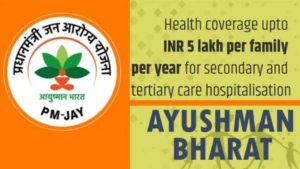Financial literacy plays a crucial role in shaping societies and has a significant impact on individuals, families, and communities as it is linked with their financial attitude, behaviour, knowledge and financial skills.
Financial education enables an individual to understand about the basic financial concepts and enable them to take sound financial decisions. It also instigates an individual to have the good financial habits and positive financial attitude, which in turn helps them to create confidence in their finance management and positive impact on their mind-set.
Here are some key ways in which financial literacy affects society:
Personal Financial Stability: When individuals possess financial literacy skills, they are better equipped to manage their money effectively. They can create budgets, save, invest wisely, and avoid excessive debt. This leads to greater personal financial stability and reduces the likelihood of financial problems.
Economic Growth: A financially literate society can contribute to overall economic growth. As people make informed financial decisions, they are more likely to invest in productive assets leading to the expansion of businesses and job creation. This, in turn, can boost the economy at the local, regional, and national levels.
Reduction in Financial Stress: Financial stress can have a negative impact on mental health and overall well-being. Financially literate individuals are better equipped to handle financial challenges and are less likely to suffer from stress related to money matters. This leads to improved mental health outcomes and a happier society.
Retirement Preparedness: Financial literacy is critical for retirement planning. When people are knowledgeable about saving and investing for retirement, they are more likely to build sufficient retirement corpus and avoid facing financial difficulties during their retirement years. This reduces the burden on social welfare systems and ensures a better quality of life for retirees.
Consumer Protection: A financially literate population is less vulnerable to financial scams and predatory practices. They can make informed choices when it comes to financial products and services, reducing the likelihood of falling victim to fraudulent schemes.
Responsible Citizenship: Financially literate citizens are more likely to understand the implications of public policies related to taxation, government spending, and economic issues. This leads to a more informed and engaged citizenry, contributing to better decision-making in governance and public affairs.
Enhanced Financial Stability: The spillover effect contributes to an overall increase in financial stability within the community. As more individuals exhibit responsible financial behavior, the risk of financial hardships and defaults decreases, resulting in a more stable and prosperous society.
Inter-generational Impact: When parents are financially literate, they can pass down these skills and knowledge to their children. This creates a positive cycle of financial literacy across generations, promoting long-term financial security and resilience within families and communities.
Overall, the impact of financial literacy on society is multifaceted, ranging from individual well-being to economic growth and stability. Encouraging and promoting financial education at various levels can lead to a stronger, more prosperous, and financially secured society.






